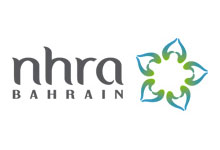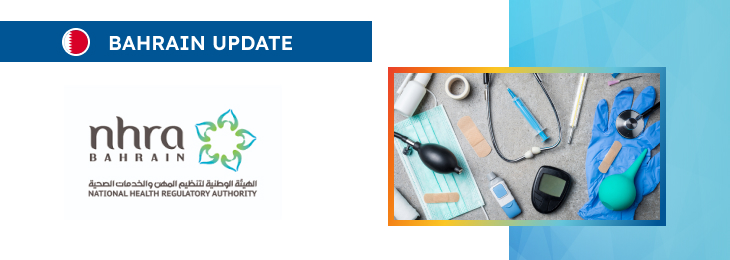The article highlights the key points related to the transition to the new regulatory framework for medical devices while ensuring their uninterrupted availability for healthcare professionals and patients.

Table of Contents
The National Health Regulatory Authority (NHRA), Bahrain’s regulatory agency has published a guidance document dedicated to the transition from Medical Directives to Regulations – the new regulatory framework recently adopted in the European Union.
The document provides an overview of the applicable regulatory requirements, as well as additional clarifications and recommendations to be taken into consideration by medical device manufacturers and other parties involved in operations with medical devices in order to ensure compliance thereto.
At the same time, provisions of the guidance are non-binding in their legal nature, nor are they intended to introduce new rules or impose new obligations. Furthermore, the authority reserves the right to make changes to the guidance and recommendations provided therein, should such changes be reasonably necessary to reflect corresponding amendments to the underlying legislation.
Introduction
First of all, the authority mentions that in response to the ongoing transition in Europe from Medical Directives to Regulations, despite the rising number of notified bodies designated in accordance with these new Regulations, the overall capacity remains inadequate to ensure the timely conformity assessment of numerous devices covered by certificates issued under previous Directives.
This document provides guidance on the best solutions for various scenarios stakeholders might encounter during this transitional period. It is also important to mention that the requirements detailed herein will supersede the verification of the CE certificate only, although the expired CE certificate and the remainder of the stipulated requirements must still be included in applications.

Cases
In order to assist the parties responsible for medical devices affected by the regulatory changes, the authority provides additional recommendations in the form of cases, describing the suggested way of action to be followed depending on the particular situation.
Case: Importation of Devices Produced Before MDD Certificate Expiry
For devices produced before the expiration of the MDD Quality Assurance Certificate, the following documents must replace the CE certificate verification:
- A letter from the Legal Manufacturer confirming that the product was manufactured prior to the expiration of the MDD Quality Assurance Certificate.
- A letter from the Notified Body indicating that the Legal Manufacturer is transitioning to the MDR, with the letter specifically related to the device by scope, previous certificate, or a mentioned name.
Case: Certificates Expired Before March 20, 2023
As per Regulation (EU) 2023/607, certificates valid on May 26, 2021, and expired before March 20, 2023, can be extended if:
- The manufacturer and a notified body have signed an agreement in accordance with Section 4.3, second subparagraph of Annex 7 of the MDR.
- A competent authority of a Member State has granted a derogation.
In such cases, the following must be provided:
- The Agreement or the Derogation letter, along with proof of its authenticity.
- A Confirmation letter from the Notified Body confirming that the Legal Manufacturer has met the applicable conditions and its verification.
Alternatively, the Manufacturer’s Declaration may be provided as per Annex I hereto.
Case: Certificates Valid on May 26, 2021, with Extension Conditions
Certificates valid on May 26, 2021, and still valid at the time of Regulation (EU) 2023/607’s publication are eligible for extension if:
- The manufacturers have implemented an MDR-compliant QMS.
- A formal application has been lodged with a Notified Body for a formal agreement by September 26, 2024.
Required documents include:
- The Manufacturer’s Declaration (refer to Annex I).
- A Confirmation letter from the Notified Body verifying that the Legal Manufacturer met the applicable conditions.
It is also important to mention that after September 26, 2024, all certificates in this case will fall under the second case described above, assuming the agreement was signed before this date, while this case will be no longer valid.
Case: Extended Transition Period for Active and Non-active Medical Devices
According to the guidance, manufacturers can continue using the Manufacturer’s Declaration of Conformity issued before May 26, 2021, if:
- An MDR-compliant QMS is in place.
- A formal application for MDR Conformity Assessment has been lodged with a Notified Body.
Required documentation includes a Confirmation letter from the Notified Body verifying the Legal Manufacturer met the applicable conditions.
The authority also mentions that for devices up-classified under the MDR, the following deadlines apply:
- December 31, 2027, for Class III (excluding custom-made implantable) and IIb implantable legacy devices.
- December 31, 2028, for other Class IIb, Class IIa, Class Is, and Class Im legacy devices.
For In-vitro diagnostic devices up-classified under the IVDR, the previous Manufacturer’s Declaration of Conformity has the following deadlines:
- May 26, 2025, for Class D self-declared IVDD devices.
- May 26, 2026, for Class C self-declared IVDD devices.
- May 26, 2027, for Class B and Class A sterile self-declared IVDD devices.
Additional Documents for Transfer of Surveillance Activities
It is also important to mention that in cases where surveillance activities of “legacy’” medical devices transfer to another Notifying Body for MDR certification, the authority would also expect a party responsible for the medical device in question to provide a signed transfer Tripartite Agreement between the manufacturer, the new notifying body, and the old notifying body (refer to Annex I), or its equivalent as per EU regulation amendments and recommendations.
Annex I
Annex I to the present guidance includes templates and documents essential for compliance with the outlined cases, namely:
- The European Commission’s Confirmation letter template
- The MedTech Europe’s Manufacturer’s Declaration template
- The European Association of Medical Devices Notified Bodies (Team NB)’s Tripartite Agreement template.
These templates are designed to standardize the documentation process, ensuring that all necessary information is included and easily verifiable by the concerned parties.
Conclusion
In summary, the present NHRA document is intended to guide medical device manufacturers and the parties through the process of transition to the new legal framework established with the implementation of the new Regulations. The document contains a detailed description of specific cases used as examples to demonstrate the approach to be followed in order to ensure compliance with the new requirements.
How Can RegDesk Help?
RegDesk is a holistic Regulatory Information Management System that provides medical device and pharma companies with regulatory intelligence for over 120 markets worldwide. It can help you prepare and publish global applications, manage standards, run change assessments, and obtain real-time alerts on regulatory changes through a centralized platform. Global expansion has never been this simple.

